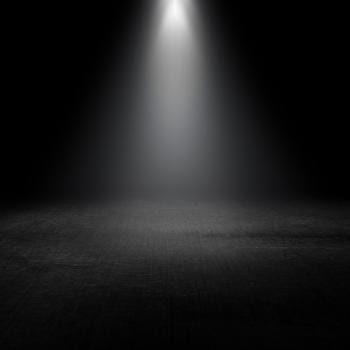By Gregory
My last post made me realize that I need to say a little more about Jewish logic as it relates to Jewish theology and Jewish concepts of law.
The two great literary works of the Jewish people are the Hebrew Scriptures (what Christians call the Old Testament) and the Talmud. Most people are familiar with the Hebrew Bible, even if they don’t read it. It’s served as a foundational text for Western culture. Its myths and narratives are still invoked. Most Christians read it or have it read to them at least weekly.
The Talmud is less known and less read, even among Jews. Many people assume it’s a large volume of writings. But as my extremely kind friend who recently gave me, and thus carried the texts to my home, will attest – the English translation of the Talmud is 28 volumes, each individual text comprised of a 200-350 pages, or more. It’s massive.
What exactly is the Talmud?
The Talmud is a set of written teachings and commentary, related to the scriptures, and addressing aspects of Jewish law and tradition. The Rabbis began writing it down in the first century CE. And finished writing the initial version about 600 years later.
Each volume deals with general topics in Jewish life and poses questions, offers answers, debates the answers, clarifies scripture, and adds understanding to each issue.
Now, for the part about Jewish logic. Jews don’t relate to their law the same way as do Christians. Let me offer an example.
One of the earlier volumes in the Talmud is about Sabbath observance. There are pages and pages of commentary and analysis about when the Sabbath begins and when to light the candles and when to say the blessings.
While the general gist is that the Sabbath begins at sundown on Friday evening, and that one lights the candles before the blessing, because it’s the blessing that begins the Sabbath, the commentary is all over the place and multiple opinions and theories are offered.
What does it mean to observe? When exactly is sundown? How does a blessing start the Sabbath? IS lighting candles a permissible Sabbath activity? Jews are left with wide degrees of freedom as to how to interpret the requirements for lighting Sabbath candles.
Linear logic is not the logic of the early Jewish Rabbis. Their logic is more circular, organic, more conversational, more dialectical, and more phenomenological.
Each issue in the Talmud begins with a short quote from the Mishnah – a statement of law and/or practice often derived from the Bible. The statement is then debated and commented on – for years, decades, centuries, by multiple authors, calling upon various sources, sometimes quoting teachers long gone and dead, but assuming to know what they would say.
It’s like having Abraham Lincoln engaged in conversation with Thomas Jefferson, John Adams, and John Kennedy about the Constitution. Conclusions are few. The conversation is riveting. You learn tons. But when you’re done, you’re not really done.
As the saying goes, ask three Jews and you’ll get at least six opinions.
There often isn’t a conclusion or definitive answer to the questions raised. First, the intention was that the conversation and debate would go on into the future, so that even Jews today would add their insights, their answers, and their thoughts for the generations to come. Second, it’s not part of Jewish logic that firm answers always exist to complex questions and issues. Some things seem settled and have a strong majority opinion, some issues are grayer, requiring further analysis.
Jewish theology always says – let’s talk – we have time.
Where does all of this get us? Especially in terms of Jewish logic and law?
Consider the Biblical commandment to stone a woman found guilty of committing adultery. The scriptures call for the woman to be stoned in front of her father’s house. The command appears in scripture at least twice.
The Rabbis raise the question in the Talmud and then begin applying their logic. What is adultery? How do we find someone guilty? How many witnesses are required? Why stone her in front of her father’s house?
By the time the commentary and analysis is done, it would be nearly impossible to stone any woman for adultery – the bar for conviction, the requirement of witnesses, the urging for mercy, the twists and turns of Jewish logic – always opting for compassion, justice, kindness, and forgiveness. Granted, adultery is never approved of, never condoned, but mercy prevails.
Can such conversation sound legalistic? Sure. Is such conversation motivated by legalism? Not at all. The motivation of even the ancient Rabbis was mercy and love. The entire enterprise of Talmud is one of gentleness and a move toward affirming human dignity.
Talmud, and thus Jewish law, understands that conversation isn’t over. The Talmud isn’t finished. And the logic toward mercy, love, and freedom is still alive and dominant in Jewish theology.
Are Jews under the law? Well, it depends on how you define law? And what exactly do you mean by under? And what would Rabbi Akivah say about that? How about Hillel? And here in Torah it says we are all free …
Pull up a chair. Have a glass of wine. This will take some time.















